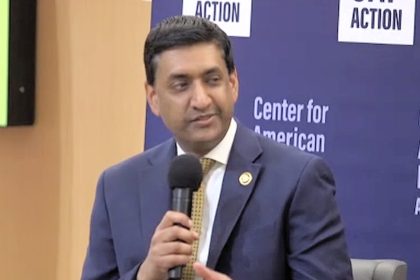BPC Report Shows How Mental Health Can Become Part of Primary Health Care

WASHINGTON – The Bipartisan Policy Center recently released a comprehensive report outlining legislative and regulatory changes that need to be made in order to make mental health a part of Americans’ primary health care experience.
In conjunction with the report’s release, the BPC hosted a webinar on the report’s recommendations with those who were involved in the report’s research.
“This is a unique moment for our country to come face to face with an issue that it has been historically ignored,” stated Benjamin Miller, chief strategy officer with the Well Being Trust, during the webinar.
“Mental health is all of us, every person has it, it’s the foundation for our health, our core and yet we have not developed a system that can take care of it when we need help.
“Our solution is firmly rooted in integration,” he continued, “bringing mental health and addiction into the fabric of all our redesign.”
According to the BPC, integrating behavioral health and primary health care services will help address behavioral health issues such as untreated mental illnesses, substance abuse disorders and more, that have become exacerbated as a result of the COVID-19 pandemic.
Since last year, adult symptoms of anxiety and depressive disorders have quadrupled. As of last August, nearly a quarter of 18-24 year olds reported having seriously considered suicide.
Additionally, the CDC recently reported that drug overdose deaths have accelerated during the pandemic, with overdose deaths reaching the highest number ever recorded in a 12-month period.
As a response to the growing mental health and addiction crisis, the BPC formed its Behavorial Health Integration Task Force last year in an effort to break down barriers in integrating primary and mental health care.
The BPC says integrating its recommendations will enhance access to care, improve treatment outcomes, reduce health disparities and be cost effective.
Their recommendations would cost the federal government $2.2 billion over a 10-year period, including $6.9 billion in costs and $4.7 billion in savings. The recommendations stand to benefit approximately one million Americans, according to the BPC.
“Illinois, Missouri, Arizona, Colorado, and Washington lowered medical costs by integrating care, primarily through their Medicaid programs,” said the BPC.
According to the BPC, Arizona’s health care savings were estimated to be roughly $14.4 million through the state’s Medicaid managed care organization contracts over a two-year period.
Similarly, Colorado saved approximately $178.6 million from 2016-17 across public and private payers.
Among the recommendations included in the report is an establishment of core, minimum standards of care that would improve accountability for health care providers when integrating care.
Additionally, the task force recommends that the federal government drive integration by using new and existing value-based payment models.
“Value-based payment models have structural elements that make them an ideal home for integration,” explains the BPC.
“Existing payment structures in Medicaid MCOs, Medicare accountable care organizations, and Medicare Advantage plans already have well-defined quality metrics, delivery standards, and payment methodologies through which integration can be applied, enforced, and incentivized.”
The task force also has recommendations on how America’s healthcare workforce can adapt to integration.
According to the BPC report, “Americans are experiencing a lack of access to behavioral health care providers. Primary care clinicians already handle some behavioral health care needs of their patients, but they report feeling overwhelmed, ill-equipped, and underpaid.”
The BPC recommends that the federal government expand Medicare coverage to additional mental health provider types and expand funding for medical training and scholarship opportunities to broaden and diversify the workforce.
The think tank also recommends that lawmakers create a nationwide technical assistance program for primary health care practices to accommodate training for the value-based payment models.
In addition to investing in technical assistance for healthcare practices, the report discusses the need to promote electronic health records and telehealth services in order to support integrated care.
To ease the barriers placed on health technology, the task force suggests that the government offer financial incentives to mental health clinicians to adopt the use of electronic health records and encourage information exchanges among providers.
“The BPC Behavioral Health Integration Task Force urges the Biden administration and the 117th Congress to carefully consider the task force’s recommendations,” concludes the BPC report.
“As the COVID-19 pandemic has exacerbated behavioral health issues in our nation, so has it highlighted the problems inherent in our health care delivery system that make it difficult to respond.
“The time has come to remove barriers to integration to tackle the health care issues that have existed and been exacerbated by COVID-19.”

























